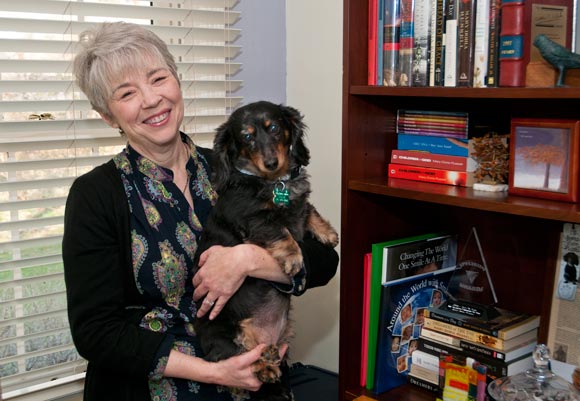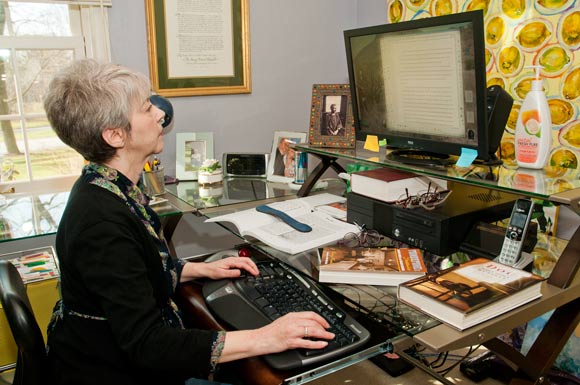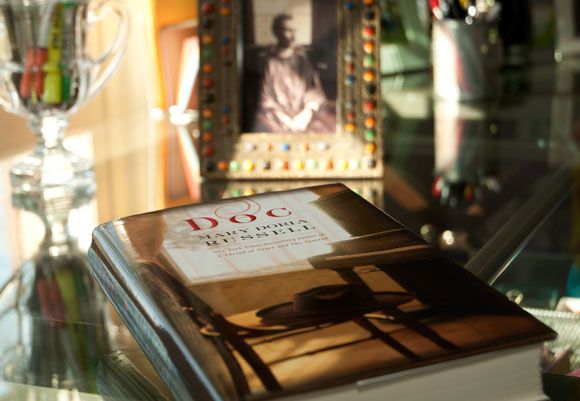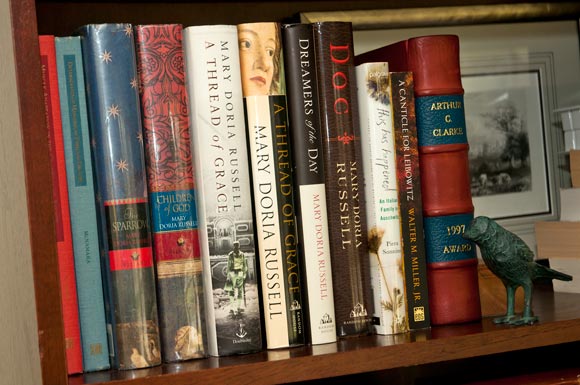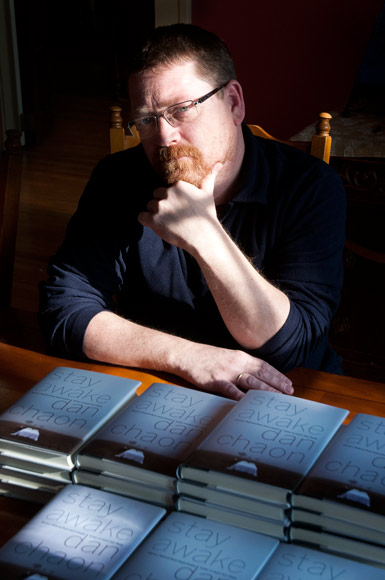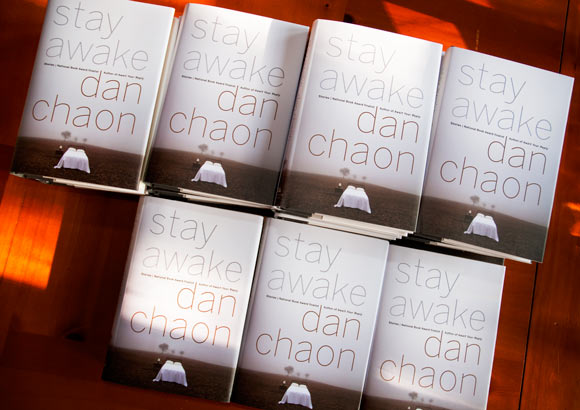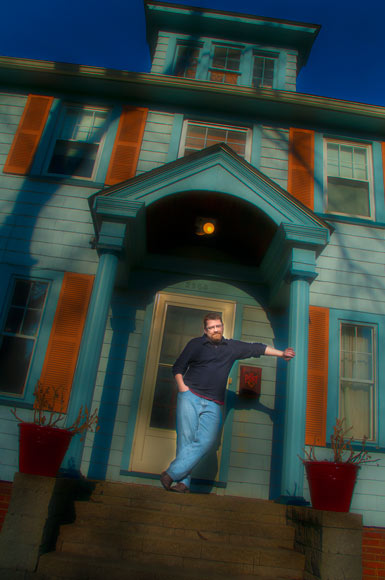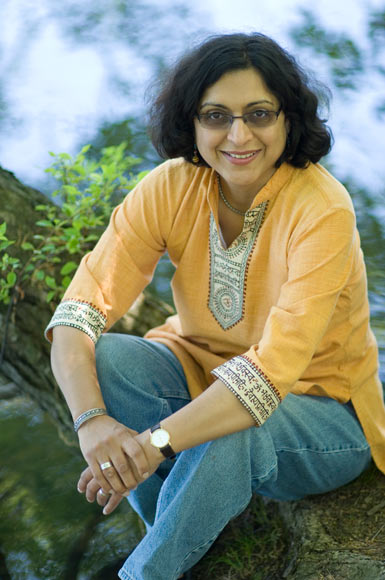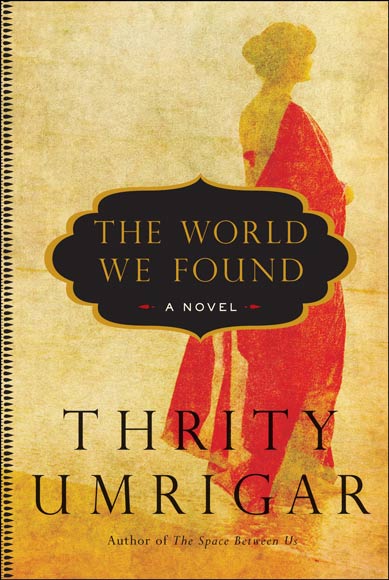cleveland's literary elite publish fresh works of fiction in the digital age
These days, the mere mention of e-books, e-publishing or e-anything sends waves of fear through major publishing houses. As reading habits shift from print to tablet, sales of e-readers are spiking while sales of books are plummeting. That trend is causing many to wonder about the future of the printed book.
Yet, as predictions of the death of literary fiction come and go each year, writers continue to soldier on -- because it’s what they do, and because they have to.
There is a surprisingly rich community of accomplished authors living in Cleveland, many of whom have embraced publishing in the Internet age. In fact, if you take a walk through Cleveland Heights -- and other neighborhoods -- you might even bump into one of them.
Recently, Fresh Water caught up with three of our best fiction writers -- Dan Chaon, Mary Doria Russell and Thrity Umrigar -- to discuss their latest releases, how they’ve cultivated audiences, and whether printed books will make a comeback.
Stay Awake, Dan Chaon
Like the characters in his stories who are haunted by grief, loneliness and regret, Dan Chaon doesn’t sleep much. He dozes four or five hours a night, but before he does, he'll spend a few hours in his paper-strewn attic, writing into the wee hours.
Chaon’s new collection of short stories, Stay Awake, blends elements of literary fiction and pulp horror into a creepy masterpiece that will keep you up at night, too, staring into the darkness long after you’ve stopped reading. Filled with dark, quirky characters who dwell in a shadowy underworld, cut off from "normal" life by bad luck and worse decisions, the book seems to refute the idea that life is ever predictable, rational or moral. And although it has plenty of suspense, Stay Awake refuses to offer easy answers.
Clearly, Chaon’s graveyard-shift schedule is working, as the Oberlin College professor has churned out within the past decade or so two award-winning novels and a pair of impressive story collections. Critics praise him, and so do the book-buying masses.
Chaon’s popularity with younger, Internet-savvy readers might stem from his witty, deadpan writing style, which is at once literary and approachable. Far from a threat to his sales, the trend towards e-reading may help him, Chaon says. In fact, e-readers accounted for 25 percent of the sales of his last novel, Await Your Reply.
Chaon also is a writer who absorbs pop culture and makes its influences his own. He claims to read bits and pieces from more than 1,000 books per year, and he likes to compare his interwoven story collections to concept albums by his favorite bands.
Despite his savvy with technology, Chaon still is deeply attached to the printed book. His childhood in small town Nebraska literally was transformed by the presence of a bookmobile, and he still loves the physical act of browsing the stacks. The printed book probably will never disappear, he claims.
“On the other hand, the bookstore is pretty endangered,” he adds. “We might start to see it as a very boutique, specialty place, although perhaps there will be a backlash against that. Where will writers go to read when there aren’t many bookstores left?”
Chaon also is troubled by how the Internet is changing the way we seek answers to deeper questions. The Google search has, for many people, replaced browsing the library stacks. “Walking through the stacks is a different kind of exploratory thinking. It’s very closely related to what happens when you’re writing a novel or short story.”
One might say Chaon, who has cultivated a following despite industry changes, has one foot planted in the world of printed books and the other in the world of the virtual page. This paradox of sorts is mirrored in Stay Awake, which seems both deeply familiar and surprisingly fresh.
Doc, Mary Doria Russell
In the Hollywood version of Doc Holliday’s life, he’s the legendary gunslinger who brought justice to a lawless Western town. In real life, though, Holliday was an idealistic young man living a life of exile. Born into a life of Southern aristocracy, he contracted tuberculosis from his dying mother at age 21. Seeking a drier climate to improve his health, he moved to Dodge City, Kansas, where he found work as a dentist. When the economy collapsed, he took up gambling to earn a living. Holliday’s youthful ideals soon were tested by crippling illness and economic woes.
Mary Doria Russell wrote Doc, her novel about Holliday’s life, to blow holes in the Hollywood version while telling a riveting tale of the man behind the myth.
“I wanted to right Doc Holliday’s reputation,” says Russell, who lives in Lyndhurst. “I couldn’t give him a longer life or better life, but I could give him his voice back.”
Russell first became interested in Holliday’s life after reading the biography Doc Holliday: A Family Portrait. So much had been omitted from the movies, she learned. How had a man born into a wealthy family and who graduated from dentistry school at age 20 end up in the middle of the Gunfight at the O.K. Corral?
“In the movies, Doc is presented as a consumptive gambler that has an odd hobby with other people’s teeth,” Russell says with a laugh. “The real Doc Holliday was tall, fit and popular with the ladies -- that is, until his life cracked open when he got the disease.”
It's revealing that Doc ends before the infamous gunfight takes place. As readers, we become so engrossed in Holliday’s story and Russell’s vividly rendered prose that we hardly miss it. This action-packed tale takes place in a boom-and-bust cattle town filled with prostitutes, cowboys, gamblers and politicians on the take.
Russell’s rendering of this tale is enriched by her own background. As a police officer’s daughter, she grew up hearing stories of scofflaws. She also has a doctorate in anthropology and taught for several years at Case Western's School of Dentistry. Russell left academia over two decades ago to pursue writing full-time. That led to her breakthrough success The Sparrow, a science fiction novel about a Jesuit-led mission into space.
Now, with Doc, Russell has created another compelling novel grounded in meticulous research and informed by her eclectic background. It has not gone unnoticed; Doc was recently optioned by HBO for a series to be produced by Akiva Goldsman and Ron Howard, the team behind A Beautiful Mind.
As for e-books, Russell says that electronic formats could actually help authors who cross genres. “In Barnes and Noble, my books are shelved all over the damn place,” she says. “Online, if you look up any of an author’s books, they’re all right there.”
Russell came to Cleveland to pursue a life in academia. Now a writer, she draws on the diverse and supportive literary community here. "If you need help, as when Harvey Pekar died suddenly, the word gets out and people step up.”
The World We Found, Thrity Umrigar
This latest novel by Indian-born writer Thrity Umrigar begins with the startling, evocative image of a broken tooth. That tooth serves as a reminder to Laleh, a principal character, of her broken heart when learning of her friend Armaiti’s terminal illness. It also conjures other thoughts, too.
"For some absurd reason, it reminded Laleh of the New York skyline after the towers went missing -- a gap that drew attention to what was absent,” Umrigar writes.
So begins The World We Found, Umrigar’s novel about four friends coming of age in India during the radical left movements of the '70s. Now, they must grapple with the course their lives have taken since the idealistic days of their youth. Along the way, Umrigar tells the story of a world deeply changed by extremist fundamentalism, a theme hinted at by the book's opening scene.
Not unlike the baby boomers of America, the novel’s characters must grapple with the fact that they have retreated from the lefty activism embraced as students. Umrigar came up with the idea for the novel after running into an old college friend in India. Over lunch, the woman explained how she’d become disillusioned with politics.
“When the Hindu-Muslim riots occurred in India in the early 1990s, it was not unlike September 12, 2001,” Umrigar said at a recent book reading. “You had the sense that you went to bed in one country and woke up in another.”
In The World We Found, Umrigar’s main characters must confront the politically active past they’ve left behind, and make one final choice to take action.
Umrigar’s novel comfortably spans the vast cultural distance between the U.S. and India, and perhaps there is no better writer to present readers with this global, post-Colonial view of the world. At the age of 21, Umrigar came to the U.S. to attend graduate school in journalism at Ohio State. She has worked as a newspaper reporter and now teaches English at Case Western Reserve University. She has written four novels and a memoir.
In many ways, Umrigar’s story is that of the contemporary American immigrant. She is indebted to American ideals of free will and choice that have empowered her to pursue life here as a writer, yet she retains a deeply international perspective.
“There’s a lot of interest now in South Asian writing, and we’re more welcoming now of other cultures,” she says. “The more we hear other voices, the better off we all are.”
Although Umrigar is a global citizen, she proudly calls Cleveland home. “I’ve often talked about what a great, supportive literary community we have here. It’s a fantastic feeling to know that people you love and respect are invested in your success.”
Photos Bob Perkoski * except where noted
- Images 1 - 4: Mary Doria Russell
- Images 5 - 7: Dan Chaon
- Images 8 & 9: Thrity Umrigar * photo by Robert Muller


